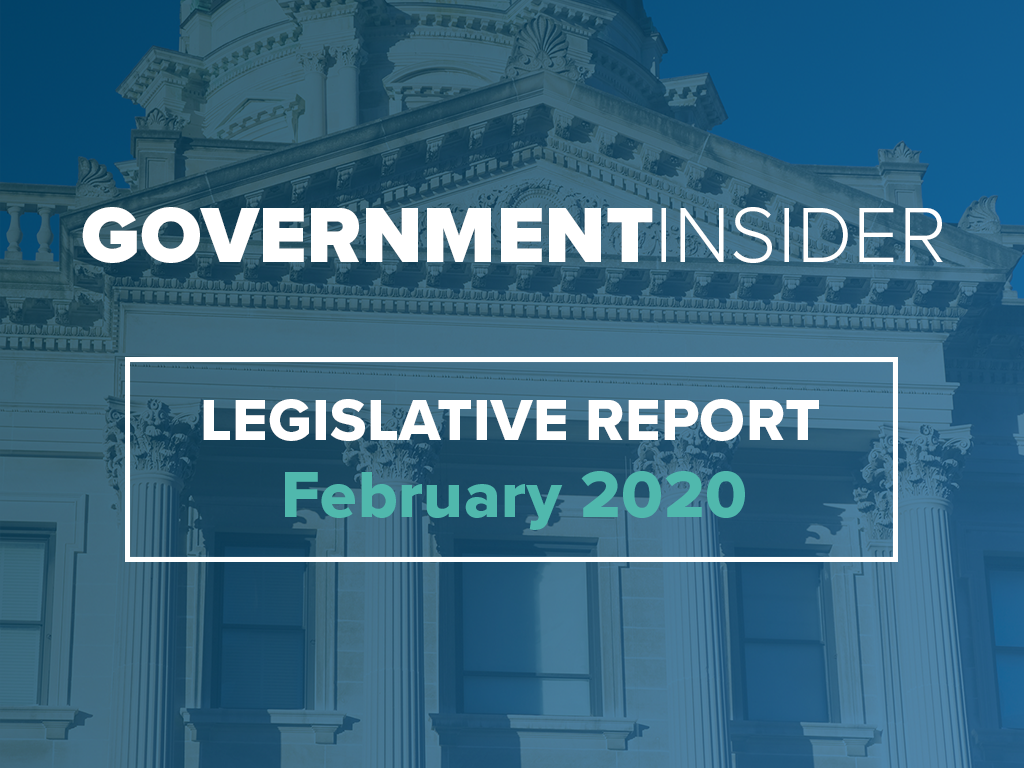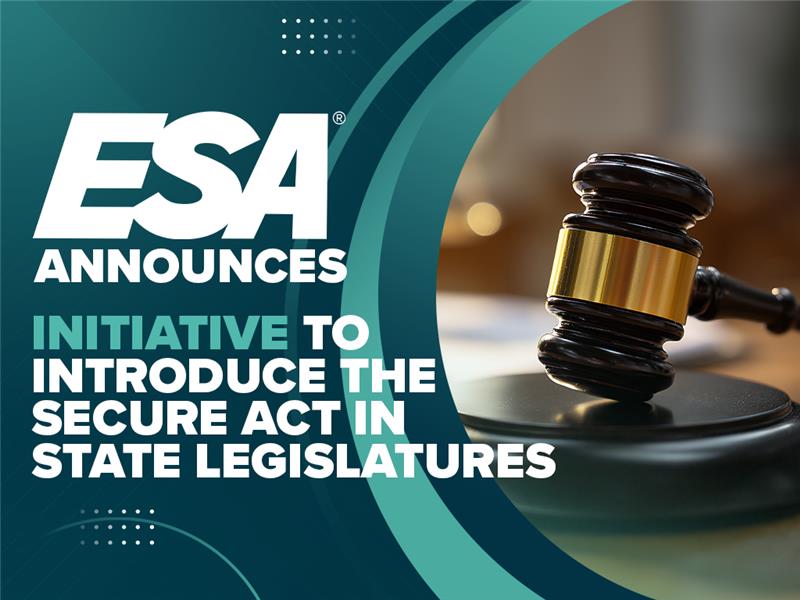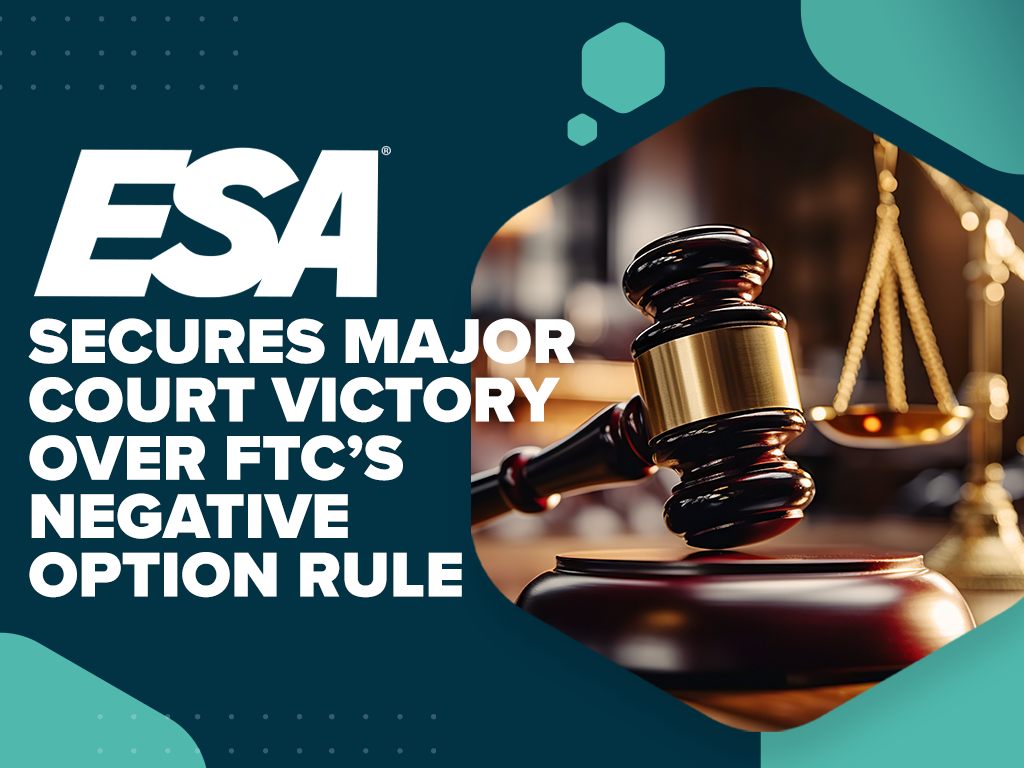Legislative Report – February 2020

Federal Legislative Summary
Federal legislation in February touched on several watch issues that are also prominent in state legislatures – Labor, consumer protection and biometric technology.
H.R. 2474 is titled “Protecting the Right to Organize Act of 2019,” which attempts to do so by expanding the definition of “joint employer.” This bill would expand union control within the National Labor Relations Act and among many provisions it would expand “joint employer” definition to include two or more employers who codetermine control over an employee and includes instructions for courts or the NLRB to consider direct and INDIRECT control over an employee’s terms and conditions of employment. This bill also modifies the list of actions that would qualify as unfair labor practices; and allow collective bargaining agreements to require all employees in a unit to contribute fees to a labor organization as a condition of employment. H.R. 2474 passed the House on February 6, 2020 and was received in the Senate on February 10, 2020. It was referred to the Committee on Health, Education, Labor and Pensions. We do not expect this bill to make much progress in the Senate, but bills such as this, which would also preempt many state statutes, must be taken seriously for the potential impact if political tides change.
S. 3300 is a federal version of data privacy bills filed in many states, but it would create a federal agency titled, the “Data Protection Agency.” It would not preempt state laws that do not conflict with this proposed law.
S. 3284 was introduced on February 12, 2020 and draws on some of the popular misconceptions of facial recognition technology. It would prohibit its use by federal agencies without a warrant until specific uses are approved by a congressional commission established by this bill.
Download the Member-Only February 2020 Federal Legislative Report
State Legislative Summary – February 2020
February was another busy month with 308 bills that were introduced or moved among our watch list issues. We identified good bills, like Mississippi HB 1044, which would prohibit local governments from imposing fines on electronic security companies when false alarms occur. There were also several bills that would enhance security in special education classrooms by mandating video surveillance systems be installed to protect students. These bills include Georgia HB 1001, Louisiana HB 138, New Jersey SB 1492, Maryland SB 1019/HB 1292 and Mississippi HB 437.
Occupational licensing was the most popular watch list issue in February. Over 70 bills were identified, with many proposals providing licensing reciprocity for military family members and similarly licensed individuals who migrate from other states. These bills take many forms, but the intent is to reduce barriers to entry into occupations and professions and increase market equities for labor supply. Other licensing bills that warrant closer attention include Minnesota SF 3318, which creates a new licensing framework for security system companies and installers, including requirements for criminal background checks. And, the annually filed Maryland Electrical Act bill (HB 1127/SB 994) is gaining more attention because it has a Senate companion and there are numerous forces working to seek passage. This bill has a convoluted “low-voltage” electrician license requirement that limits voltage based on the type of low-voltage work done. ESA is actively engaged with many stakeholders from industry associations and national company members to either get the language right or stop this bill.
Unfortunately, we continue to find bills harmful to small businesses that will likely create long-term issues for some states. One example is another project labor agreement (PLA) bill that will harm merit-based contractors, which appears to be on its way to becoming law in Virginia. HB 358 would authorize any state or local government to require bidders for public works contracts to enter into collective bargaining contracts with labor unions for its employees as a condition for bidding and being awarded a contract. Bills such as this tout the need for qualified labor to perform the labor for public works projects, yet ignore that many contractors and their workers, who are equally qualified, choose not to engage in collective bargaining because alignment with unions often increase costs, create greater labor shortages and undermine the competitive bidding process.
In Vermont, the Governor vetoed a paid family leave (PFL) insurance bill (HB 107) because he believes a state-mandated PFL would harm economic development with a new $29 million payroll tax and the potential for long-term consequences by creating bureaucratic processes to administer the program, which is unwarranted with viable private alternatives available.
Download the Member-Only February 2020 State Legislative Report




